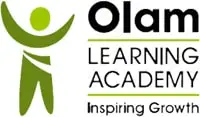The Need
Grow and develop local talent to take on regional manager roles.
The Solution
A frontline leadership program using insights from Early Identifier to target development needs, plus a blended learning approach with Frontline Leadership courses, microcourses, and online tools.
The Result
Participants showed positive shifts in leadership behaviors and advanced to next-level leadership roles from the cornerstone program.
Unleashing Talent From the Bottom Up
Olam is a leading global food and agri-business, supplying food ingredients, feed, and fibre to thousands of customers across the globe.
As part of Olam’s efforts to engage employees and strengthen the organization’s pipeline of future leaders, the L&D team took a specialized focus on frontline leadership development. They wanted to groom talent to build local bench strength, which would ensure sustained succession planning at that level and beyond.
Olam’s HR leaders saw the global manager role evolve from the company’s founding more than 30 years ago. “Today, our local talent is of a completely different caliber and they’re much more equipped to be climbing up the corporate ladder,” says Wendy Yeo, Regional Head, Learning and Development Asia-Pacific and Russia, at ofi (olam food ingredients). “They want progression and they're also calling out for an indication that the organization is investing in their career aspirations.”
Its shift in talent strategy and the evolution of this frontline manager role at Olam prompted HR leaders to investigate how they could start investing in frontline leader development. “We knew our high-potential manager candidates would benefit from an approach that's much more intentional and developmental,” says Yeo. “The objective is to facilitate deeper insights about their leadership motivation, domain capabilities, and help them hone their strengths, improve in areas of improvement, in preparation for leadership advancement within the organization.”
Creating the “Raising Leaders” Program
The Olam L&D team collaborated with DDI to co-design a robust, customized three-phase learning journey. The Olam team named the program “Raising Leaders.”
“Raising Leaders” kicked off with individuals completing an in-house multisource feedback tool and DDI’s Early Identifier assessment as prework. Early Identifier provides high-value insights on strengths, gaps, and how personality can affect performance. The assessment results provided Olam’s HR team with individual and group-based data on the strengths and gaps across key skills and personal attributes that measure leadership potential.
Individuals gained greater awareness of their developmental priorities to craft personalized development plans to use during training sessions. This approach helped each learner best leverage new insights and skills. Group-based data helped the L&D team prioritize which skills needed the most work and determine the training to close gaps.
The first phase of the program involved training participants in alignment with Olam’s business, culture, and vision. This phase was fully helmed by Olam’s very own “Leaders as Trainers” and facilitated by L&D managers.
For phases two and three, the Olam training team curated courses from DDI’s Foundation Subscription leadership development system to fit the needs of the “Raising Leaders” program. The team also chose course themes surrounding Self-Leadership, Being in a Team, and Effective Role Delivery through frontline leader competency-mapping as well as insights from Early Identifier. Other key developmental themes include Prioritizing and Productivity, Making High-Quality Decisions, Leading Teams: Achieve More Together, Leveraging Diversity, Communication: Connect Through Conversations, Influencing Others to Make Things Happen, Fostering Innovation, and more.
Additionally, content for phases two and three included contextualized application exercises and integrated organization-specific framework, process, and tools. This ensured that learners identified with the content, which increased their confidence and helped them realize behavior change.
Phases two and three also included employee engagement and learning nudges, e.g., launch calls, development coaching, elective e-learning resources via iQUEST (Olam’s e-learning platform), and community-of-practice sessions to encourage networking and cross-learning. All of these touchpoints are carefully designed into the “Raising Leaders” learning journey for sustained development.
The approach really allowed our high-potential candidates to reflect on where their strengths are, and then elevate those strengths into the skills needed at the next level.
Wendy Yeo
Ensuring Developmental Sustainability
To ensure developmental sustainability, direct managers were actively involved throughout the learning journey. Managers were educated early in the program about their role and significance in helping to develop their frontline talent.
They were given a glimpse of the regional-level talent profile and suggested best-fit learning support. They were also gifted with manager guides and received relevant nudges on how to support their employees throughout their learning journey.
“This isn’t a journey that ends at the six-month mark,” says Yeo. “We reinforce the importance of tripartite collaboration amongst individual learners, direct managers, and L&D to further developmental support beyond formal training. We continue to keep a pulse on every individual’s growth and progress.”
“In addition, we fulfilled our strategy of developing our L&D managers as DDI-certified facilitators. Doing this will enable our own in-house team to facilitate trainings and add deeper context to concepts. This will also help to maintain and grow a common development language throughout the organization.”
Advancing to the Next Level of Leadership
The program’s first global rollout shows impressive results, including:
- 91% of participants report that the learning material is very/extremely relevant for their roles.
- 100% of participants report they have some practical ideas to apply what they have learned in the training back on the job.
- 93% of participants report that they would recommend this session to others.
And best of all, the majority of participants so far have been on track for career progression within the organization within one to two years of completing the program while the rest of the program’s participants continue to be placed in critical and/or expanded roles.
“Today the program is a critical (and mandatory) development touchpoint to prepare frontline managers for career advancement in the organization,” says Yeo. “We want to make sure that everyone that gets through the gates eventually has already benefited from an intervention like this that allows them to develop self-awareness and then also start investing and taking ownership of their own development.”
Early results also show a positive shift in leadership behaviors amongst program participants as well as self-reports about how they’re now able to appreciate and understand the larger business context and how their current role—and future advancement—fits and supports the company’s high-level strategy.
“Much of the early feedback is positive verbatims that we heard from the ground. And a sure indication of impact is having senior leadership rethink the purpose of having such a cornerstone program as part of the talent management and talent development cycle,” says Yeo. “But ultimately, these impacts wouldn’t have been possible without our close partnership with DDI."
Learn more about DDI’s approach to leadership development.
Topics covered in this blog


